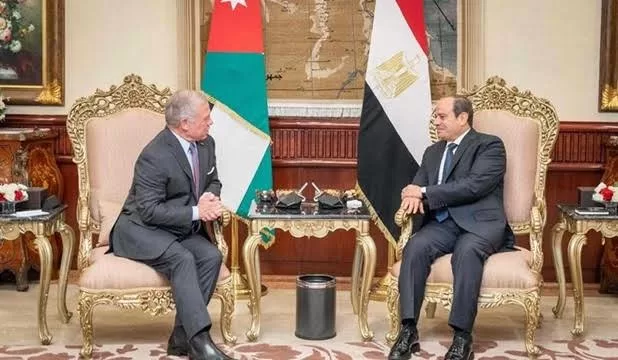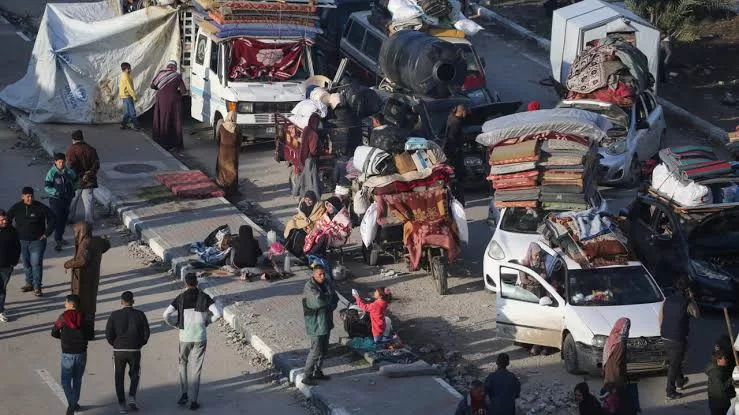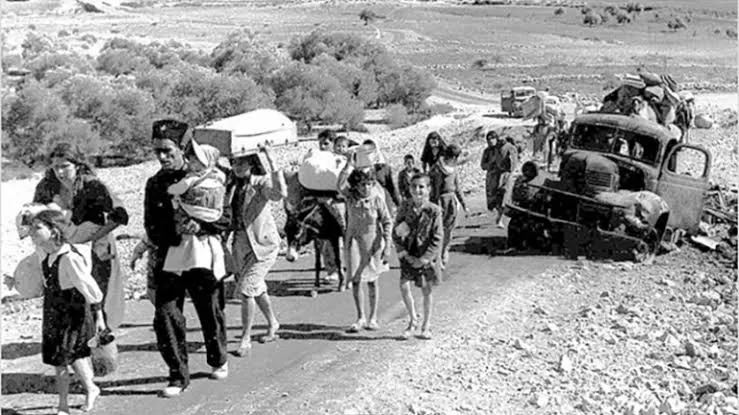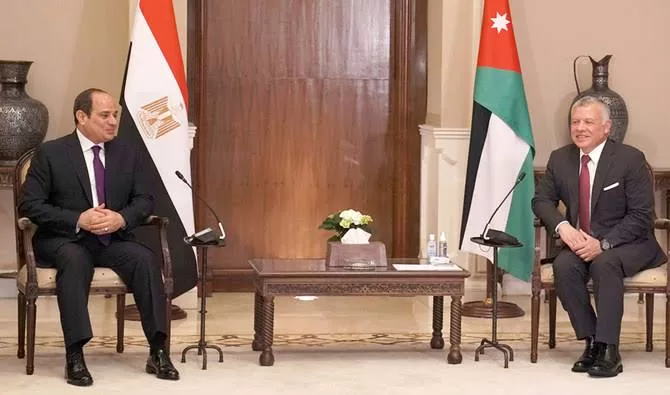The Palestinians who were forced to leave their land in different parts of historical Palestine in the past had never been allowed to return
Egypt and Jordan share identical views on regional and international issues of common interest to the peoples of both countries.
This is evident especially when it comes to the two countries’ rejection of the displacement of Palestinians from their land as US President Donald Trump had suggested.

King Abdullah II of Jordan once again rejected any mass displacement of Palestinians after his recent meeting with President Trump who has called for the Gaza Strip’s roughly 2 million residents to be removed from the war-ravaged territory.
Trump has suggested these people could be resettled in Jordan and Egypt, both of which are vehemently opposed to any such scenario.
The Palestinians also reject Trump’s plan, which they view as an attempt to forcibly displace them from part of their homeland.
Saudi Arabia, the United Arab Emirates, and Qatar have also rejected such plans.
As expected, the Israelis have welcomed Trump’s proposal which Human Rights Watch and others have said would amount to ethnic cleansing.

During his meeting with Trump, King Abdullah volunteered to accept up to 2,000 children from Gaza who have cancer or otherwise require medical treatment.
But in a post on X after the meeting, he reiterated Jordan’s steadfast position against the displacement of Palestinians in Gaza and the West Bank, adding that it was a unified Arab position.
In a phone call on Wednesday, Egyptian President Abdel Fattah El Sisi and King Abdullah agreed that Gaza should be rebuilt without displacing Palestinians.
The two leaders reaffirmed the Egyptian-Jordanian firm stance, emphasising the full implementation of the ceasefire agreement in Gaza, the continued release of hostages and detainees, and the facilitation of humanitarian aid deliveries to alleviate suffering in the besieged strip.
Both leaders also vowed to work closely with the Trump administration to achieve lasting peace in the Middle East, advocating for a path that leads to the establishment of an independent Palestinian state based on the June 4, 1967 borders, with East Jerusalem as its capital.
The two leaders also discussed ways to consolidate coordination and consultation among Arab nations, as well as preparations for the emergency Arab summit scheduled to take place in Egypt on February 27.
The summit aims to fulfill the aspirations of regional peoples for peace, stability, and prosperity.
A history of displacement
Before and during the 1948, some 700,000 Palestinians, a majority of the pre-war population, fled or were driven from their homes in what is now Israel, an event the Palestinians commemorate as the Nakba (Arabic for “catastrophe”).

Israel refused to allow them to return because it would have resulted in a Palestinian majority within the borders of its illegally built state.
The refugees and their descendants are now estimated at 6 million, with large communities in Gaza where they make up the majority of the population, as well as the Israeli-occupied West Bank, Jordan, Lebanon, and Syria.
In the 1967 war, when Israel seized the West Bank and Gaza, 300,000 more Palestinians fled, mostly into Jordan.
With over 2 million Palestinians, the kingdom hosts the largest population of Palestinian refugees, most of whom have been granted Jordanian citizenship.
The decades-old refugee crisis has been central to the Israeli-Palestinian conflict and was one of the thorniest issues in peace talks that last broke down in 2009.
The Palestinians have a right to return to their homes and the land of their ancestors. Israeli occupation authorities say, however, that these Palestinians should be absorbed by surrounding Arab countries.
Many Palestinians view the latest war in Gaza, in which entire neighbourhoods have been shelled to oblivion and 90 per cent of the populations have been forced from their homes, as a new Nakba.
They are confident that if large numbers of Palestinians leave Gaza, they too will never return.
Steadfastly remaining on one’s land is central to Palestinian culture and was on vivid display in Gaza last month when thousands of people returned to the most heavily destroyed part of the territory in northern Gaza.
Meanwhile, Egypt and Jordan fiercely rejected the idea of accepting Gaza refugees early on in the war when it was floated by some Israeli officials.
Both countries have made peace with Israel, but support the creation of a Palestinian state in the occupied West Bank, Gaza, and East Jerusalem.
They fear that the permanent displacement of Gaza’s population could make that impossible.
Egypt’s leader, Sisi, has repeatedly warned of the security implications of transferring large numbers of Palestinians to Egypt’s Sinai Peninsula which stands on the border with Gaza.





